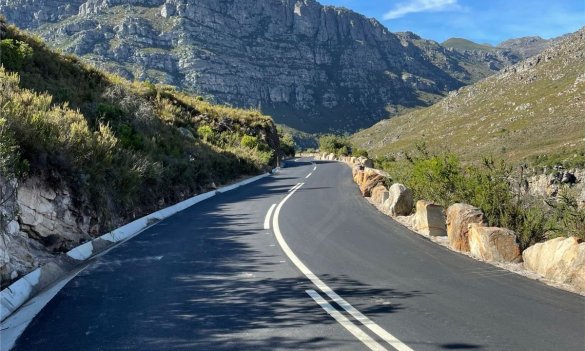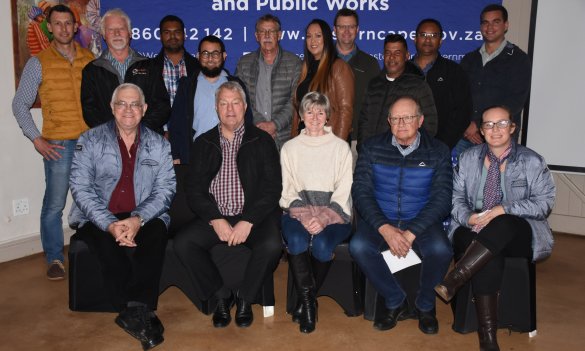In 2018, the Department of Transport and Public Works awarded ERO Engineers a contract for the periodic maintenance of a section MR27 and MR201, better known as Bainskloof Pass. The opening of Bainskloof was celebrated by Head of Department Jacqui Gooch and staff of the Department’s Roads Branch at a launch event on 13 June 2022 in Wellington.
Bainskloof is an historic 18km mountain pass between Wellington and Ceres through the Limietberg Nature Reserve. Measured from the bridge over the Breede River to the outskirts of Wellington, the road is 26.8km long. The original dry masonry pass was built by Andrew Geddes Bain between 1849 and 1853 using convict labour. Bain was a self-taught engineer who become Roads Inspector for the Cape Colony in 1845. In 1934, the road was tarred. Bainskloof was declared a national monument in 1980.
The main design improvements identified during a visual assessment of MR201 included pavement improvements by repairing and resealing the existing road, and drainage improvements by deepening and lining side drains. Safety improvements included reinstating the masonry wall and stone boulders at steep drops. Some slopes also required stabilisation.
The project team could not use standard road design principles for safety and structural improvements. Instead, the team had to respond creatively to key design constraints, namely that Bainskloof is a national monument, the pass has width and height constraints, and the road passes through a nature reserve.
The contractor was required to make use of labour-intensive methods, and to use targeted contractors and suppliers of goods and services. This R317m contract provided R80.6m of work for targeted enterprises, R16.6m of work for local enterprises, and R17.9m of work for emerging contractors. A total of 517 short-term Expanded Public Works Programme (EPWP) work opportunities were created for people from local communities. A further 284 person-days of work were also awarded through this project.
Bainskloof is home to 277 varieties of flowering plants, many of which are endemic, 182 bird species, as well as otters, jackals, leopards, honey badgers, klipspringers, grysbok, steenbok, endangered frogs, and some unique fish.


